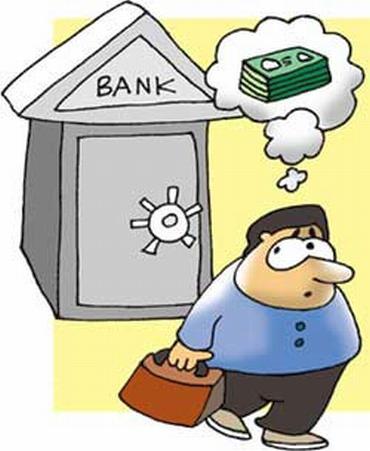 | « Back to article | Print this article |
How banks GOOF UP with their customers' accounts
A peek into how the marketing and sales departments of banks goof up with their customers' bank accounts
My friend Rakesh was perplexed. He had received an unsolicited call from a bank employee urging him to take an unsecured personal loan that was being offered at an excellent interest rate. Rakesh was initially reluctant and said no but the salesperson was persistent and since the interest rate was attractive, Rakesh decided to go for it as it would help him renovate his house. He submitted all his documents that were collected promptly.
After that all communication stopped and the sales person stopped picking up his call. With great difficulty he found out that his loan application had been rejected since his income was below the minimum level that the bank required to make him eligible for that loan. This was extremely puzzling as Rakesh had not approached the bank but it had been the other way around.
Here let me also narrate an incident that I personally experienced last month.
Apnapaisa is a price comparison engine that allows consumers in India the ability to compare the EMI, interest rates and other fees for home loans, car loans, personal loans, business loans, credit cards, compare online quotes and features of life insurance, health insurance, car insurance, travel insurance and other general insurance policies in India.
How banks GOOF UP with their customers' accounts
I am a 'Preferred Customer' with a leading private sector bank with whom I have an overdraft account. One of the privileges which I enjoy as a 'Preferred Customer' is that if any cheque is presented in my account that exceeds the available balance, the relationship manager calls to alert me about the cheque and allows me some time to transfer funds to my account to honour the cheque.
It is an extremely valuable service and bank has done it without fail as a result of which, I never had a cheque bounce ever since I started banking with them.
Yet last month when I got a call from my relationship manager, saying that there is insufficient balance to honour a small value cheque that had hit my overdraft account. I was surprised since I knew that the account had a small positive balance and none of the overdraft limit had been utilised. My relationship manager was unable to explain why this small value cheque could not be passed despite the overdraft limit. To cut the story short, I transferred the necessary amount into my account but decided to investigate further.
I was shocked to learn that my overdraft account has been reset to zero as my overdraft renewal request had been declined. Nearly a month before the renewal was due I had got a call from my relationship manager. Accordingly I had submitted the necessary paperwork well in time and was not expecting any issues as the overdraft was fully secured against the surrender value of my life insurance policy.
On further investigation I was told by the credit department of the same bank that my application for overdraft account had been rejected. Nobody in the bank had bothered to inform me that my overdraft renewal request was rejected and that the overdraft limit had been set at zero.
Although I did not suffer any loss but this instance piqued my interest. I found out that the credit policy of the bank had recently been tweaked and they were no longer offering overdraft accounts to salaried consumers. But, unlike Rakesh, I was not left puzzled since I had worked in a bank before.
How banks GOOF UP with their customers' accounts
In most banks the retail lending side of the business is like a car that is driven by two people. The sales and marketing team is one driver which puts its feet firmly on the accelerator by trying to source as many consumers as possible and the credit team is the other driver which is putting its feet firmly on the brake and, as a result, the car lurches forward rather than going forward smoothly.
The sales team aggressively markets their loans to the customers from various lists sourced from multiple sources without verifying whether those consumers will even qualify for a loan from their bank. Sales people being what they are, assure the potential customer that s/he will get the loans and/or the credit card.
In majority of cases the things go smoothly but in some cases there is sudden brake by the credit team who rejects her/his file. Amidst all this, customer is left in the lurch due this sudden refusal.
Anyway, I got the answer but what about the customers who are left in dark about how and why one particular privilege is taken away from them or worse still why his loan has been rejected.
Clearly the retail lenders need to realise the brand damage that occurs when a consumer who is being pursued is suddenly dropped without information.
I hope that there is a bank which comes with a credit policy which actually matches its lending requirement with potential consumers before it markets to them. More importantly it actually has the courage to say no to specific cases and say yes to specific cases, by having a clearly defined policy instead of having a policy and giving deviations in a majority of cases. This will also enable Internet based interfaces that their sales teams can use to pre-qualify customers at the preliminary stage itself. A quick and unambiguous decision will not only improve the banks brand image but a clear cut credit policy will also reduce sourcing costs dramatically.


